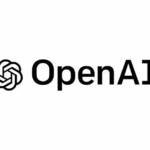Google is developing a new AI system that can take control of your web browser to perform various online tasks, according to reports from The Information. The system, internally known as “Project Jarvis,” is designed to handle activities such as conducting research, making purchases, and booking flights.
The AI assistant, which is powered by an upcoming version of Google’s Gemini language model, is specifically designed to work with the Chrome web browser. The system operates by analyzing screenshots, clicking buttons, and entering text to complete web-based tasks. Currently, the system requires a few seconds between actions as it processes and executes commands.
Limited Testing Phase Ahead
Google reportedly plans to demonstrate Project Jarvis as early as December, though these timeline plans could change. The company is considering releasing the tool to a small group of testers initially to identify and resolve potential issues before a broader release.
The development of Project Jarvis represents Google’s entry into an emerging category of AI technology known as “computer-using agents,” which are designed to interact directly with computer interfaces on behalf of users.
Industry Competition in AI Automation
The tech industry is seeing increased activity in the development of AI systems capable of operating computers autonomously and performing complex online tasks. Several major technology companies are working on similar projects:
Microsoft has developed Copilot Vision, a tool that enables users to interact with and discuss web pages they are viewing. Apple’s technology, called Apple Intelligence is expected to understand screen content and perform actions across multiple applications.
Anthropic recently released a beta version of its Claude AI system that can operate computers, though reports indicate the current version faces some operational challenges. OpenAI is also reportedly developing similar technology that would allow AI to interact with computer systems.
The development of these AI agents can radically change the way users will interact with computers and the internet in the future. These tools aim to automate routine online tasks that currently require manual input and navigation.
The focus on browser-based automation suggests tech companies see significant potential in developing AI systems that can understand and interact with web interfaces.
Google’s approach with Project Jarvis, focusing specifically on Chrome browser integration, indicates a logical decision to build upon their existing ecosystem. The company’s position as both a leading AI developer and the creator of the world’s most popular web browser could provide advantages in developing and implementing this technology.
(Photo by Solen Feyissa)








